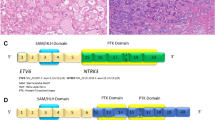Abstract
The primary aim of this study is to assess differences in patients’ clinicopathological characteristics based on human papillomavirus (HPV) status and the effect of HPV status on outcome in oropharyngeal squamous cell carcinoma (OSCC). The medical registry of 81 patients who were treated for OSCC was retrospectively analyzed. Factors that are found to be predictive of poor overall survival and event risk by univariate Cox’s regression analysis included age greater than 60 years (hazard ratio (HR), 1.2, p = 0.02, and HR, 1.12, p = 0.05), poor Eastern Cooperative Oncology Group performance (HR,1.6, p = 0.01, and HR,1.32, p = 0.001), advanced T stage (HR,1.38, p = 0.01, and HR,1.4, p = 0.02), advanced N stage(HR, 1.6, p = 0.03, and HR,1.5, p = 0.03), smoking history (HR,1.4, p = 0.04, and HR, 1.6, p = 0.03), and HPV-negative patients (HR, 2.4, p = 0.012, and HR, 1.8, p = 0.01). HPV-positive tumors were estimated to have a 36 % reduction in risk of death and 32 % reduction in event risk. HPV status had independent prognostic effects on survival and event-free survival.


Similar content being viewed by others
References
Sturgis EM, Ang KK. The epidemic of HPV-associated oropharyngeal cancer is here: is it time to change our treatment paradigms? J Natl Compr Canc Netw. 2011;9:665–73.
Chaturvedi AK, Engels EA, Pfeiffer RM, Hernandez BY, Xiao W, Kim E. Human papillomavirus and rising oropharyngeal cancer incidence in the United States. J Clin Oncol. 2011;29:4294–301.
Kreimer AR, Clifford GM, Boyle P, Franceschi S. Human papillomavirus types in head and neck squamous cell carcinomas worldwide: a systematic review. Cancer Epidemiol Biomarkers Prev. 2005;14:467–75.
Hobbs CG, Sterne JA, Bailey M, Heyderman RS, Birchall MA, Thomas SJ. Human papillomavirus and head and neck cancer: a systematic review and meta-analysis. Clin Otolaryngol. 2006;4:259–66.
Gillison ML, D’Souza G, Westra W, Sugar E, Xiao W, Begum S. Distinct risk factor profiles for human papillomavirus type 16-positive and human papillomavirus type 16-negative head and neck cancers. J Natl Cancer Inst. 2008;100:407–20.
Näsman A, Attner P, Hammarstedt L, Du J, Eriksson M, Giraud G. Incidence of human papillomavirus (HPV) positive tonsillar carcinoma in Stockholm, Sweden: an epidemic of viral-induced carcinoma? Int J Cancer. 2009;125:362–6.
Ang KK, Harris J, Wheeler R, Weber R, Rosenthal DI, Nguyen-Tân PF. Human papillomavirus and survival of patients with oropharyngeal cancer. N Engl J Med. 2010;363:24–35.
Huang SH, Perez-Ordonez B, Liu FF, Waldron J, Ringash J, Irish J. Atypical clinical behavior of p16-confirmed HPV-related oropharyngeal squamous cell carcinoma treated with radical radiotherapy. Int J Radiat Oncol Biol Phys. 2012;82:276–83.
Rischin D, Young RJ, Fisher R, Fox SB, Le QT, Peters LJ. Prognostic significance of p16INK4A and human papillomavirus in patients with oropharyngeal cancer treated on TROG 02.02 phase III trial. J Clin Oncol. 2010;28:4142–8.
Lorch JH, Goloubeva O, Haddad RI, Cullen K, Sarlis N, Tishler R. Induction chemotherapy with cisplatin and fluorouracil alone or in combination with docetaxel in locally advanced squamous-cell cancer of the head and neck: long-term results of the TAX 324 randomised phase 3 trial. Lancet Oncol. 2011;12:153–9.
Posner MR, Lorch JH, Goloubeva O, Tan M, Schumaker LM, Sarlis NJ. Survival and human papillomavirus in oropharynx cancer in TAX 324: a subset analysis from an international phase III trial. Ann Oncol. 2011;22:1071.
Lassen P, Eriksen JG, Hamilton-Dutoit S, Tramm T, Alsner J, Overgaard J. Effect of HPV-associated p16INK4A expression on response to radiotherapy and survival in squamous cell carcinoma of the head and neck. J Clin Oncol. 2009;27:1992–8.
Sedaghat AR, Zhang Z, Begum S, Palermo R, Best S, Ulmer KM. Prognostic significance of human papillomavirus in oropharyngeal squamous cell carcinomas. Laryngoscope. 2009;119:1542–9.
Kumar B, Cordell KG, Lee JS, Prince ME, Tran HH, Wolf GT. Response to therapy and outcomes in oropharyngeal cancer are associated with biomarkers including human papillomavirus, epidermal growth factor receptor, gender, and smoking. Int J Radiat Oncol Biol Phys. 2007;69:109–11.
Fakhry C, Westra WH, Li S, Cmelak A, Ridge JA, Pinto H. Improved survival of patients with human papillomavirus-positive head and neck squamous cell carcinoma in a prospective clinical trial. J Natl Cancer Inst. 2008;100:261–9.
Fischer CA, Zlobec I, Green E, Probst S, Storck C, Lugli A. Is the improved prognosis of p16 positive oropharyngeal squamous cell carcinoma dependent of the treatment modality? Int J Cancer. 2010;126:1256–62.
Hong AM, Dobbins TA, Lee CS, Jones D, Harnett GB, Armstrong BK. Human papillomavirus predicts outcome in oropharyngeal cancer in patients treated primarily with surgery or radiation therapy. Br J Cancer. 2010;103:1510–7.
Hammarstedt L, Dahlstrand H, Lindquist D, et al. The incidence of tonsillar cancer in Sweden is increasing. Acta Otolaryngol. 2007;127:988–92.
Nasman A, Attner P, Hammarstedt L, et al. Incidence of human papillomavirus (HPV) positive tonsillar carcinoma in Stockholm, Sweden: an epidemic of viral induced carcinoma? Int J Cancer. 2009;125:362–6.
Gillison ML, Koch WM, Capone RB, et al. Evidence for a causal association between human papillomavirus and a subset of head and neck cancers. J Natl Cancer Inst. 2000;92:709–20.
Lindel K, Beer KT, Laissue J, Greiner RH, Aebersold DM. Human papillomavirus positive squamous cell carcinoma of the oropharynx: a radiosensitive subgroup of head and neck carcinoma. Cancer. 2001;92:805–13.
Mellin DH, Lindquist D, Bjornestal L, Ohlsson A, Dalianis T, Munck-Wikland E, et al. P16(INK4a) correlates to human papillomavirus presence, response to radiotherapy and clinical outcome in tonsillar carcinoma. Anticancer Res. 2005;25:4375–83.
Licitra L, Perrone F, Bossi P, Suardi S, Mariani L, Artusi R. High-risk human papillomavirus affects prognosis in patients with surgically treated oropharyngeal squamous cell carcinoma. J Clin Oncol. 2006;24:5630–6.
Conflicts of interest
None
Author information
Authors and Affiliations
Corresponding author
Rights and permissions
About this article
Cite this article
Tural, D., Eliçin, O., Batur, Ş. et al. Human papillomavirus is independent prognostic factor on outcome of oropharyngeal squamous cell carcinoma. Tumor Biol. 34, 3363–3369 (2013). https://doi.org/10.1007/s13277-013-0907-8
Received:
Accepted:
Published:
Issue Date:
DOI: https://doi.org/10.1007/s13277-013-0907-8




